How we selected the 40
Defining “Our Time”
There have been many great and influential entrepreneurs throughout human history. But this list will focus on those outstanding entrepreneurs of our time. In order to be considered in this list, the entrepreneur must have started their business after 1960. This means great entrepreneurs such as Estee Lauder, Colonel Sanders, and Thomas Edison will not be included. Those are names that will be included in a future list.
Other criteria
To select our 40 greatest and most influential entrepreneurs, we looked at those entrepreneurs who have made an impact on the world while influencing the world of entrepreneurship. In order to make this list an entrepreneur must meet certain criteria. For example, their business or businesses must have made a global impact. The entrepreneur must have started a business that created a new category or captured significant market cap by penetrating a crowded market or a market that was already dominated by a few brands.
These entrepreneurs are not listed in any particular order.
Greatest and Most Influential Entrepreneurs of Our Time
1. Steve Jobs-Apple
Born Abdul Latif Jandali in San Francisco in 1955, Steve Jobs would grow to be one of (if not the) greatest entrepreneurs of our time. His ability to lead and innovate as well as communicate his vision has made him an icon. Steve Jobs and Steve Wozniak founded Apple in 1976 from Jobs’ family’s suburban garage. The original name was Apple Computers inc, and its primary goal was to develop computers. By 1981, Apple went public and became a Fortune 500 company.
In 1985 as Steve Jobs was forced out of the company he founded. Now out as the leader of Apple, Jobs founded NeXT computers as well as The Graphics Group which was later named Pixar. Pixar would become extremely successful after partnering with Disney and, after Disney’s acquisition of Pixar, Jobs became Disney’s largest shareholder.
In 1997, a struggling Apple bought NeXT for $427 million bringing Jobs back to the company he had co-founded. Jobs became the CEO in July 1997. The board’s decision to bring back Steve Jobs, after firing him a decade earlier, led to amazing product innovation.
In a comeback story for the ages, Jobs went on to lead Apple to new heights. He helped co-create products such as the iPod, iPad, iPhone and the first Apple stores. Jobs wanted to focus on design and simplicity when it came to Apple products. This focus, along with brilliant marketing, helped Apple catch up and surpass many of its competitors. Apple was the first company to surpass a market cap of $1 trillion on Aug. 2, 2018 thanks to the innovations created by Jobs.
2. Jeff Bezos-Amazon
The world’s largest retailer was started by Jeff Bezos in 1994. Amazon was initially started as an online bookstore. Bezos had the idea after hearing about the rise in internet use and after learning that mail order catalogs were not required to collect sales taxes in states where they lack a physical presence. Bezos and a few employees ran the company from his garage after quitting his job as Vice President of a successful Wall Street Investment Firm.
They then expanded operations into a two-bedroom house and eventually developed a test site. Amazon.com went public in 1997. Amazon consistently lost money for its first several years as a public company. One of the best decisions made by Bezos was to consistently invest in Amazon’s long-term growth as opposed to focusing on quarterly profits like many growing public companies do. In 2019, Amazon is now worth an estimated $797 billion.
Not since Bill Gates and Steve Jobs has there been another entrepreneur that has changed an entire industry the way Bezos has. The entire retail sector reacts to what Amazon is now doing. Besides building one of the world-changing businesses in history, Bezos has also has aspiration to reach the stars with his private space endeavor called Blue Origin.
His and Amazon’s impact on the world of entrepreneurship is also notable. Amazon published its second annual “Small Business Impact Report” on Tuesday May 7th, 2019. The report revealed that Amazon has helped more than 1.9 million U.S.-based small and medium-sized businesses (SBMs) generate more than $160 billion in 2018. The company says that these businesses, on average, make $90,000 a year in Amazon sales.
Bezos’ ability to focus on the big picture as well as serving Amazon’s customers enabled the company to do things unimaginable.
3. Bill Gates-Microsoft
Gates founded Microsoft in 1975 and today owns just over 1% of its shares. It all began with the need to write the code for a BASIC interpreter on the platform of an Altair 8800. From there it went to working with IBM and creating them an operating system with 86-DOS. Windows launched in 1985 and growth since then has been non-stop, with one idea building off of another, i.e., Microsoft Suites, Xbox, Hotmail, etc. Today Gates’s net worth is more than 107 billion dollars.
Gates and Paul Allen launched Microsoft in 1975 and launched their first version of Windows in 1985. Gates is known for his legendary ability to problem solve. That determination to find solutions coupled with a willingness to spend hours on end writing code, helped Microsoft become the software behemoth it is today and has made Bill Gates one the wealthiest and most influential people on the planet.
On June 15, 2006, Gates began his transition out of his day-to-day role as CEO of Microsoft in order to dedicate more time to philanthropic work.
4. Mark Zuckerberg-Facebook
Starting Facebook from his dorm room in 2004, Mark Zuckerberg has become the prototypical example of the college student entrepreneur.
In 2006, Facebook was making major waves in the social networking space. At only two years old, Facebook was a college site with roughly 8 million users. According to Peter Thiel who was an early investor in Facebook, the company was making $30 million in revenue but it was not profitable.
Yahoo, Inc. came knocking and offered to buy Facebook for $1 billion dollars. Thiel recalls reminding Zuckerberg that he owned 25% of the company and could do so much with the money. The 22-year old Zuckerberg responded by saying, “I don’t know what I could do with the money. I’d just start another social networking site. I kind of like the one I already have.”
Facebook would go on to an IPO in May of 2012. As of 2019, Facebook reported a revenue of $27.6 billion at a market capitalization of approximately $546 billion and Mark Zuckerberg is now worth approximately $59.4 billion.
What is amazing about Zuckerberg is the fact that, at such a young age, he was able to maintain his role as CEO of Facebook as well as the majority of voting shares. His focus on testing Facebook and social media innovation enabled Facebook to be the dominant social platform on the planet. One of Zuckerberg’s strategies was to surround himself with people who are smarter than him and have separate areas for expertise. Hiring Sheryl Sandberg as COO, for example.
Although Facebook has been plagued with privacy concerns, Zuckerberg’s entrepreneurship legacy is undeniable.
5 &6. Larry Page and Sergey Brin-Google
Originally nicknamed “BackRub”, the PageRank technology that defined Google was created by Sergey Brin and Larry Page in 1996. Brin and Page founded Google while they were getting their PHDs at Stanford. Their goal was simple, they wanted to create a place where you could find anything. But instead of using the number of times a search term appeared on a page as a primary method like most search engines of the day, Brin and Page focused on a better system that analyzed the relationships between websites.
Working on the Google project from their dorm room, they were reluctant to become entrepreneurs because they didn’t want to shelve their PHDs and rush into the hype of the “dot-com” craze. But after Google began to receive about 10,000 searches a day, they decided to take it seriously. Google was initially based in the garage of a friend in Menlo Park, California.
The company went public in 2004. As of 2016, Google averages 100 billion monthly searches. Google Inc is now a subsidiary of Alphabet Inc with Larry Page as CEO and Brin as President. Alphabet Inc generated a staggering $136 billion of revenue in 2018.
Brin and Page collectively own approximately 40 million Class C shares and another 40.6 million Class B shares or their company. This special Class of shares allows them to sell Class A and C shares and still retain control of their company.
7. Oprah Winfrey
Unlike many of the other women billionaires in America who inherited their wealth through marriage or inheritance, Oprah Winfrey is a self-made billionaire. Very hard to do. Especially for a African American woman raised in the segregated South during the 1950’s. Born in rural Mississippi, she was raised by a single mom and grew up so poor that she often wore dresses made out of potato sacks! After a series of traumatic and tragic events, Oprah moved to Nashville, went on to become an honors student and after that worked her way up the media ladder and became what she is today.
Oprah Winfrey is, without a doubt, one of the, the not the most influential women in the world today and in history. Millions tuned into her talk show “The Oprah Winfrey Show” during the 1990’s. During that time, she became the most well known host surpassing the popularity of people such as Geraldo Rivera, Sally Jessie Raphael, and Phil Donahue. The show was produced by Winfrey’s company Harpo Productions. She later started her own television company called the Oprah Winfrey Network (OWN).
As far as influence, there are very few people in the world that can match Winfrey’s. The term “The Oprah Effect” began being used to describe the impact of a product or industry that was endorsed or mentioned by Winfrey. Products, books, or people that were featured on her show would receive massive exposure and increase in sales after being mentioned by Winfrey. Her business empire also includes O, The Oprah Magazine, Oxygen Network (which she co-founded), and she also owns 12.5% of the weight loss company Weight Watchers. Her net worth, as of 2020 is $2.6 billion.
8. Howard Schultz-Starbucks
Howard Schultz, the Founder of Starbucks and former owner of the Seattle Supersonics, grew up in a housing complex for the poor. Ever since a young age his goal was, in his own words “to climb over the fence”. Schultz desperately wanted to escape poverty and he would eventually manage to do so. He ended up winning a football scholarship and started working for Xerox as well as a general manager for Hammarplast, Swedish drip coffee maker manufacturer.
Schultz decided to visit a small coffee shop in Seattle called Starbucks Coffee Company. He was impressed by the company and later joined them as the Director of Marketing. In 1986, he opened his own coffee shop called Il Giornale. Later, the co-founders of Starbucks decided to sell the company to Schultz. He then executed his plan to aggressively grow the company nationwide. There are now about 27,000 Starbucks locations worldwide. Schultz’s net worth is $4.7 billion.
9. Warren Buffett-Berkshire Hathaway
The perennial second richest person on earth is also a well-known introvert. Buying his first stock at age 11, Warren Buffett showed early signs for taking entrepreneurial initiatives and abstract thinking. In 1956, Warren Buffet took his personal savings and started Buffett Partnership Ltd. He later invested in, and took control of Berkshire Hathaway.
At the time, Berkshire Hathaway was a textile company. He phased out its textile manufacturing division, instead expanding the company by buying assets in media (The Washington Post), insurance (GEICO) and oil (Exxon).” Over time, Buffett’s investments in undervalued companies help make him one of the richest men in our era. As of 2018, his net worth was estimated to be around $84 billion.
Buffett is also known for his charity and philanthropic endeavors and has given away close to $28 billion to support them. Some of these charities that he has donated to include homelessness, creative arts, poverty, health, and human rights just to name a few.
10. Jack Dorsey-Twitter & Square
Chief Executive Officer of Twitter, Jack Dorsey helped create a platform that has changed the way we converse. Twitter has made it possible for anyone to connect with powerful politicians, celebrities, and world leaders by just sending a tweet.
In 2009, he founded Square, Inc which eventually IPO’d in 2015. Dorsey is still the CEO of Square and is also a Board Member of The Walt Disney Company. Twitter is now seen as one of the last true social media platforms that revolve around conversations as opposed to sharing content and comments.
As a kid growing up in St. Louis, Missouri the current CEO and co-founder of Twitter had to deal with a stuttering problem. Because of that affliction, he preferred to speak very little and instead spent time by himself. He was able to conquer the problem by participating in different oratory competitions.
The success of Twitter and Square has made Dorsey one of the most influential entrepreneurs of our time. Square market cap as of April 17, 2020 is $26.59 billion and Twitter, a $20.95 billion market cap. As of 2020, Dorsey’s net worth sits at $3.8 billion.
11. Cher Wang-HTC
Wang began her career by working with her sister, who had co-founded a motherboard manufacturing company in 1982, as a marketing representative for motherboards of personal computers. She founded HTC (High Technology Company) in 1997, marketed and manufactured one of the first touch and wireless hand-held devices, the Notebook. Accurately reading the market, Wang switched from laptops to mobile phones and PDAs. In 2015 HTC began moving into the virtual reality world and started making head-mounted displays. Today HTC is expanding into the Internet of Things with virtual reality. Wang was rated the 54th most powerful woman in the world by Forbes in 2014.
12. Phil Knight-Nike
In 1993, Phil Knight was dubbed by The Sporting News as the most powerful man in sports. He had not earned the vote by being an athlete or a team manager, rather by dressing the feet of athletic legends with his iconic brand Nike. Knight had been a track runner at the University of Oregon where he observed the coach fiddling with the running shoes of the runners and the immediate effect it had on their performance.
At Stanford, Knight handed in a paper detailing how he would run a company of quality running shoes in Japan because of low production costs. The enterprise was first called Blue Ribbon Sports, and it faced many teething problems including financial disagreements with banks. Today, Nike generates over $30 billion in sales
13. Herb Kelleher-Southwest Airlines
Herb Kelleher is famously known as the co-founder of Southwest Airlines. He grew up in New Jersey and later moved to Connecticut to study a bachelor’s degree at Wesleyan University. Kelleher’s major was English with a minor in Philosophy and was an Olin Scholar. He proceeded to New York University for a Juris Doctor where he was a Root-Tilden Scholar. After relocating to Texas, Kelleher devised the idea to establish a low-cost airline with the Texas businessman Rollin King and the banker John Parker.
The airline began operations after four years due to numerous legal battles and setbacks from its competitors. Kelleher’s vision was to use low-cost and fuel-efficient planes to reduce fares while still maintaining quality. The airline’s entry into the market led to a reduction of fares across the board in what is commonly termed as the Southwest Effect. By the time of his death in January 2019, Kelleher’s wealth was estimated at $2.5 billion.
14. Sarah Blakely-Spanx
Sarah Blakey took her $5,000 savings to start up Spanx. During an appearance on the Oprah Winfrey Show, Blakey told Winfrey that she got the idea for Spanx after hearing Oprah mention that she cut off the feet of pantyhose in order to wear them with sandals. It took her a year to create the first prototype that she tried out on friends and family, which was unheard of at the time. She was running the company out of her apartment and was still a fax machine salesperson at the time.
Since Spanx is a private company and does not release financial information, we do not know the annual revenue of the company. However, we do know that Blakely owns the entirety of the brand. Blakey is now reportedly worth $1.1 billion. With Blakely inspiring millions of women to start and grow their own businesses, next to Oprah Winfrey, Blakely is becoming one of the most influential women entrepreneurs of our time.
15. Fred Smith-Fed Ex
Fred Smith was born in Mississippi on August 11, 1944. He studied economics at Yale and while there he penned a paper explaining a concept he had of an overnight delivery service.Smith subsequently enrolled in the Marine Corps where he was exposed to the workings of the procurement and logistics system.
After leaving the Corps, Smith recognized a niche in rapid delivery of parcels. He channeled the money his father had left him to start FedEx as an alternative to the regular post service. FedEx had to adapt quickly to the advent of the fax machine and then email by such tactics as buying its airplane fleet. Smith’s wealth is estimated to be more than $5 billion.
16. Richard Branson-Virgin
Branson began his entrepreneurial career at age 16 when he started a magazine called Student. After opening up a successful record store, Branson eventually launched a record label called Virgin Records. Virgin Records would soon sign artists such as The Rolling Stones, UB40, The Sex Pistols and Steve Winwood. The label would go on to be one of the most successful labels in the world until 1992 when Branson sold the label to Thorn EMI for $1 billion.
Branson’s business success would continue with Virgin America, Virgin Mobile, and the commercial spaceflight company, Virgin Orbit. In 2016 Virgin Group had an estimated revenue of about $19.6 billion.
Beyond building billion dollar businesses, Branson is also known for being an eccentric billionaire. He has attempted to break several world-records including crossing the Pacific Ocean in a hot air balloon. With a net worth of $5.1 billion, by far the richest shark that has ever appeared on shark tank is Virgin Group founder, philanthropist and author Richard Branson. Virgin Group owns over 400 companies.
17. Sam Walton-Walmart
Sam Walton revolutionized retailing in the US through his brainchild, Wal-Mart. His foray into retailing began with a sales trainee job at a J.C. Penney store located in Des Moines, Iowa. Walton’s paperwork was disorganized, and he was almost fired. Walton was an astute salesman though, and he earned around $25 every month in commissions. After a stint in the military, Walton borrowed $20,000 and put $2,000 of his own towards buying a Ben Franklin store in Arkansas.
Walton’s strategy was pricing products below what the competitors charge, and by 1950, his store was leading in a six-state region. Disagreements with his landlord prompted Walton to move to Bentonville to establish a new store. He owned 15 stores by 1960. On July 2, 1962, Walton opened the first Walmart Discount City store at 719 W. Walnut Street in Rogers, Arkansas. The number soared to 276 in 1980, and he was ranked as the richest man in the nation in 1985 with an estimated wealth of $2.8 billion.
18. Larry Ellison-Oracle
Larry Ellison, the co-founder of Oracle Corporation, was raised by his aunt and uncle in Chicago. After his aunt died, Larry dropped out of University and moved to California. He worked a number of odd jobs for the next 8 years, until founding Oracle, in 1977. Oracle is now one of the largest companies in the world generating about $40 billion in revenue annually. Ellison is considered to be the third wealthiest person in the United States, with his net worth being around $49.9 billion.
19. Reed Hastings-Netflix
In 1997, Reed Hastings and Marc Randolph co-founded Netflix, an online movie rental service that offered flat rates to customers. The service made it easy to rent titles by using an online portal and catered to customers by eliminating late fees on returned items. A common practice by larger competitors like Blockbuster Video. By the year 2,000, Blockbuster enjoyed having 25,500 employees at 8,000 stores dispensing movie rentals and a parallel distribution system of 6,000 DVD public vending machines. The company also enjoyed having $500 million in annual cash flow and was valued at $ 3 billion. Around 2005 it was valued at $ 8 billion.
Around that time, Netflix was trying to make a name for itself by shipping DVDs to customers and, later, allowing customers to stream movies and television through the internet. In February 2007, the company delivered its billionth DVD, and began to move away from its original core business model of DVDs, by introducing video on demand. Netflix grew as DVD sales fell from 2006 to 2011.
Conversely, its primary competitor, Blockbuster, chose to stay with its retail video store business model instead of prioritizing its video on demand service. We all know what happened next. The sad part about the story is that during the late 1990s when Netflix was struggling and not making a profit, Reed Hastings, the founder of Netflix, offered to sell Netflix to Blockbuster for $50 million. Blockbuster ultimately declined.
In 2013, Netflix reported that it had added two million United States customers during the fourth quarter of 2012, with a total of 27.1 million United States and 29.4 million total streaming customers worldwide. In addition, revenue was up 8% to $945 million for the same period.
In a 2010 press release, CEO Reed Hastings referenced one of the main factors to Netflix’s success. He said, “It is clear that our performance, and the overall appeal of the Netflix service, is being driven by subscribers watching instantly.”
The online streaming era was ushered in by Netflix. As of 2020. Netflix reported 169 million paid subscribers and a revenue of $20.1 billion.
20. Jack Ma-Alibaba
Jack Ma is the most recognizable face of the multinational conglomerate Alibaba Group. Ma grew up in Hangzhou, China, where he practiced English with tourists. He attained a B.A in English at the Hangzhou Teacher’s Institute and joined Hangzhou Dianzi University as a lecturer of English and International Trade. After launching a series of websites, Ma began Alibaba in 1999 in his apartment in the company of 18 friends. The company made history in the US in 2014 after it raised $25 billion, the largest initial public offering ever raised by a company. The growth of Alibaba has made Ma among China’s and the world’s richest people.
21. Elon Musk-Paypal, Tesla & Space X
South African born Elon Musk is the current CEO and founder of SpaceX, an aerospace manufacturer and space transport company whose goal is to make space travel more inexpensive and the colonization of Mars possible. Musk’s other lucrative initiatives also include being a co-founder of Tesla, Inc., Neuralink and SolarCity.
Musk has been earning money on his ventures since he was 12. In 1995 He and his brother Kimble Musk created Zip 2 and sold it in 1999 for 340 million dollars. One of Musk’s most well-known ventures is being a co-founder of X.com, a company who later merged with Confinity.com. This merger then formed and became the now well-known and respected payment processing juggernaut, PayPal. Musk was a major contributor in the design of the Tesla Roadster, the first electric car. In a collaborative venture with NASA, he has also announced his plans to send an astronaut to Mars by 2025 with Space X.
In 2016, Musk was ranked number 21 as one of the World’s Most Powerful People by Forbes Magazine. By 2021, he had overtaken Jeff Bezos as the richest person on the planet. As of 2023, his current net worth is valued at $185 million.
22. Michael Dell-Dell Computers
Michael Dell is the proud founder of Dell Technologies which is among the largest technology infrastructure firms in the world. Dell had been fascinated by math and technology, and when he joined the University of Texas, he was selling computers that he had reconfigured with extra memory and disk drives. Dell Computer became a public company in 1988 with an impressive $85 million market capitalization. Michal Dell was then catapulted into popularity by becoming the youngest CEO leading a Fortune 500 company in 1992. Forbes currently ranks Dell as the 39th richest person in the world with a wealth of over $20 billion.
23. Garrett Camp-Uber
Garrett Camp grew up in Canada and attended the University of Calgary. While in college, Camp co-founded StumbleUpon which was the first web discovery platform. The company moved to San Francisco in 2006 after receiving its initial funding from Silicon Valley Angels. StumbleUpon was subsequently bought by eBay for $75 million. Camp’s next idea was Uber, designed to be a taxi-hailing app.
Travis Kalanick was brought on as an advisor by Garret Camp who was working on the concept of Uber with his friends. Kalanick served as Uber’s CEO from 2010 to 2017 and also served on its board until 2019.
In 2013, Garrett focused his attention into developing Expa, a startup studio that engages entrepreneurs to develop and launch new products. Expa is designed to increase the chances of success for a given startup and it received its first 50 million from investors in March 2014. By 2015, Camp was the 3rd richest Canadian with a net worth estimated at $4.8 billion as of March 2019.
24. Brian Chesky-Airbnb
Brian Chesky is a native of New York where he was raised by parents involved in social work. Chesky studied Industrial Design in the Rhode Island School of Design where he met Joe Gebbia, with whom he would start the now popular Airbnb. After working in Los Angeles, Chesky moved to San Francisco to stay with Gebbia.
The two rented out their apartment in October 2007 when a designer’s conference left some of the attendees without hotel rooms. They brought on Nathan Blecharczyk and the company Airbnb was launched. Chesky serves as the CEO of Airbnb which is used by millions of people across 191 countries. President Obama recognized Chesky as an Ambassador of Global Entrepreneurship in 2015. Chesky’s current net worth is pegged at $3.8 billion.
His disruption of the hotel and bed & breakfast industry has changed the way we travel and stay. This innovative approach has made Brian Chesky one of the greatest and influential entrepreneurs of our time.
25. Les Wexner-Bath and Body Works, Victoria’s Secret & More
Lex Wexner grew up in Dayton, Ohio and he studied business administration at Ohio State University. He worked in his parents’ store where he analyzed the profit margins and noted that inventory that cost less sold at a higher rate than higher-prized clothes.
His aunt loaned him $5,000 in 1963 to start a store he dubbed The Limited in the Kingsdale Shopping Center situated in Upper Arlington. Wexner took the company public in 1969 and has been the longest-serving CEO of any Fortune 500 Company. He has built a retailing conglomerate over the years which includes Bath and Body Works, La Senza, Victoria’s Secret, and Henri Bendel. His net worth was estimated at $6.1 billion in 2017.
26. John Paul DeJoria -Paul Mitchell Systems & The Patrón Spirits Company
John Paul DeJoria, the co-founder of the Paul Mitchell line of hair products and The Patrón Spirits Company, grew up in a foster home, used to be a gang member and at the tender age of nine began selling Christmas cards and newspapers to support himself and his family.
With only $700 in his pocket, living out of his car, and while raising a 2 year old son, Dejoria worked hard to launch his brand John Paul Mitchell Systems in 1980 with hairdresser Paul Mitchell.
The company now generates over $1 billion annually. The brand has also expanded is now well known for its Paul Mitchell Schools. The schools now have 109 locations throughout the United States and is the largest cosmetology and barber school franchise in the world. Dejoria also has a business interest in the African oil industry through his holdings in Madagascar Oil Ltd. Forbes lists DeJoria’s net worth at $3.1 billion.
27. Ted Turner-Turner Entertainment and media
Ted Turner is one of the greatest media entrepreneurs of our time, if not the greatest. Turner pioneered 24-hour cable news when he founded the Cable News Network. Turner’s father ran a successful billboard-advertising company where he worked after being expelled from Brown University. Turner bought a UHF Television Station in Atlanta in 1970 and steered it to profitability. He used a new communication satellite for broadcasting which is known as the Turner Broadcasting System.
Turner subsequently launched CNN and Turner Network Television (TNT). He also founded WTBS (later TBS) which popularized the superstation idea in cable television. Turner was also a formidable philanthropist, having donated $1 billion to the UN.
28. Reid Hoffman-Paypal & Linkedin
Reid Hoffman attended Stanford and Oxford Universities and then pursued business and entrepreneurship. He worked at Apple Computer and Fujitsu and in 1997 launched a company called SocialNet.com. Hoffman later became involved in the development of PayPal where he served as COO and executive vice president. Hoffman and two colleagues founded LinkedIn in 2002 as a business-oriented social network. Hoffman joined Greylock Partners in 2010 where he manages their $20 million Discovery Fund. His estimated wealth as of 2019 is $1.8 billion.
29. Arianna Huffington-Huffington Post
Arianna Huffington is a noted author and a syndicated columnist. She was born in Greece and moved to the UK at 16 years of age to study Economics at Cambridge. Her first book, titled Female woman, attacked the women’s liberation movement. She has written 14 more books throughout her career. Huffington is commonly associated with the news site the Huffington Post which was bought by AOL. She is also the CEO of Thrive Global, which is dedicated to health and wellness information. Huffington serves on several boards such as Uber, Global Citizen, and Onex..
30. Martha Stewart
Stewart began making money as a babysitter at 10. She modeled for Channel at 15. At 24 she was making six figures as a stock-broker. Her first book, Entertaining, which was released in 1982, went on to sell 628,000 copies. Subscriptions for the Martha Stewart Living Magazine, which began in 1990 with partner Time Warner, quickly grew to over two million copies. In 1997 Stewart bought all the rights to the magazine back and she formed Martha Stewart’s Living Omnimedia; it went public in 1999. Stewart has an estimated net worth of $800 million.
31. Kevin Plank-Under Armour
Under Plank’s leadership, Under Armour has done what was thought to be impossible; challenge the likes of Nike, Adidas, and Rebook for a share of the athletic apparel market.
A 23 year old Kevin Plank set out to create a solution to the sweat soaked shirt that he had to suffer from every time he played football. So he went down to his basement and created Under Armor. Plank was a fullback at the University of Maryland, and after graduation, he developed his first prototype of the shirt.
He gave the shirts to his Maryland teammates and friends who had gone on to play in the NFL. Originally he sold them from the trunk of his car. Within a year, he had enough of a following to open his own warehouse.
A big break for the company came in 1999 when Warner Brother’s contacted Under Armour to outfit the feature films Any Given Sunday and The Replacements. The company’s revenues for 2018 is approximately $5.2 billion.
32. Ralph Lauren
Originally born, Ralph Lifshitz, Ralph Lauren was born in the Bronx to Ashkenazi Jewish immigrant immigrant parents. After completing high school he enrolled at Baruch College, only to drop out later on. After dropping out Ralph joined the army.
Soon after that he started working as a clerk at Brooks Brothers and then moved on to become a salesman for a tie company. It is then that Lauren designed his first tie, only to be rejected by the management. Shortly after that, he started making his own ties – he made them from rags and started selling them to small shops in New York. In 1967., he opened his first necktie store and sold his neckties under the label Polo. Almost 50 years later, his clothes are world famous. As of 2017, Ralph Lauren has an estimated net worth of $6 billion.
33. Mark Cuban
Mark Cuban’s career began when he launched a company, MicroSolutions, which specialized in system integration and software reselling. He would later sell the company for $6 million to H&R Block and use the funds to launch his next company, Broadcast.com.
In 1999 Cuban became a billionaire when Yahoo acquired Broadcast.com for $5.7 billion in stock. Part of the agreement was that he should hold the Yahoo stock for a period of six months. Immediately after the agreement expired, Cuban unloaded all of the Yahoo stock for about the same price it was six months prior which was $163. This move instantly netted him $2 billion in cash. The move turned out to be a masterstroke as Yahoo’s stock slid 95% over the next year and a half.
Beyond owning the Dallas Mavericks, is currently the owner of HDNet movies. He also co-owns Magnolia Home Video and Magnolia Pictures as well as the Landmark Theatre Chain. He is also a well-known investor on the hit ABC television show Shark Tank.
The outspoken billionaire has become one of the greatest and most influential entrepreneurs of our time. He has inspired thousands of people across the globe to achieve their dreams of owning their own businesses.
34. Carlos Slim-Telmex, América Móvil, and Grupo Carso
Slim became a stock-trader in Mexico City after graduating in 1961. By the time he was 25, he earned enough money to begin his own brokerage firm. With that, he formed a global conglomerate called Grupo Carso SAB. In the 80s, when there was a peso crisis, Slim took advantage and purchased several companies with deflated values, such as Reynolds Aluminum and General Tire. Slim also owns América Móvil, Telmex, and Telcel. His net worth is $ 65 billion.
35 & 36. Kevin Systrom/Mike Krieger (Instagram)
Kevin Systrom and Mike Krieger are noted for establishing Instagram which is currently the largest photo sharing website in the world. Systrom was raised in Massachusetts, and he graduated with a B.A. in management science and engineering from Stanford. Systrom worked in Google for two years before leaving to develop a program called Burbn. Under Systrom’s guidance, Instagram has incorporated various features including photographic filters, geotagging, video, and tagging. Facebook purchased the platform in 2012 for 1 billion US dollars in cash and stock. Systrom’s net worth is estimated at $1.4 billion.
37. Debbie Fields-Mrs. Fields
Fields started her business out in 1977, believing that people should be able to try the product and the product should sell itself. She also says when hunting for someone to back you to find a banker that is about ready to retire because they are more likely to follow their heart and liable to put aside the need to follow technicalities. Her first loan was at 21 percent interest but she found someone who loved her cookies and her enthusiasm. She never recommends skimping or cutting back on quality ingredients. Fields net worth today is over 200 million dollars.
38. Calvin Klein
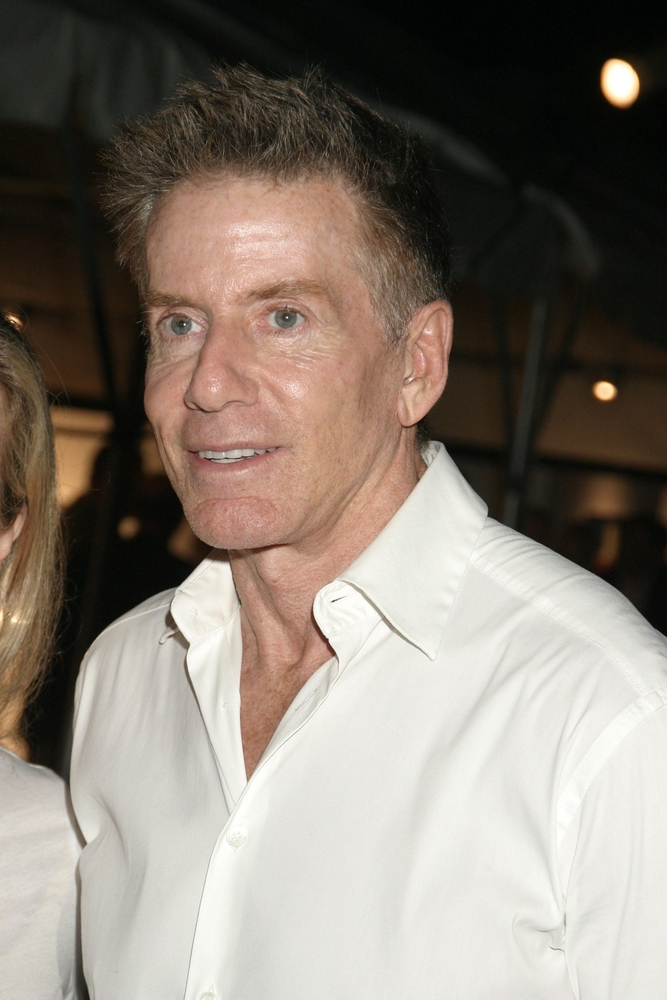
Calvin Klein at arrivals for Annual Watermill Summer Benefit and Auction, Watermill Center, Watermill, NY, July 30, 2005. Photo by: Rob Rich/Everett Collection
Calvin Klein Inc. was established in 1969 by Calvin Klein and Barry Schwartz. Klein secured millions in funding in the 70s, beginning with Bonwit Teller, to finance a streamlined clothing line for women’s coordinates. Klein went on to include designer jeans, perfumes, undergarments, and a men’s clothing line. Jeans, boxer shorts and underwear made Klein over $70 million in one year. He launched CK fragrances which was another successful venture. He later sold CK to Phillips-Van Heusen in 2013 for $430 million. Klein’s net worth is over $700 million.
39. Amancio Ortega-Zara
Without Amanico Ortega-Zara retailers such as The Gap, H&M, Forever 21 and other “fast fashion” clothing stores may have never existed. Ortega left school at 14 to sew shirts by hand for a tailor. In 1968, following his ambition and intuition, he began a company called Confecciones Goa that sold dressing gowns, housecoats, and lingerie that women in cooperatives had made for him.
In 1975, Ortega and his wife Rosalia opened his first retail store, Zara, which offered higher quality made clothes at reasonable prices. By the 80s Zara’s were located throughout Spain. Ortega incorporated Zara into a holding company called the Inditex Group and today Zara has locations throughout the world. Ortega’s net worth is over $57.5 billion.
40. Shawn Carter (Jay-Z)-40/40, Rocawear, Roc Nation Sports
This multi-platinum selling rapper is becoming more known for his business empire than his music. Born in New York City, Jay-Z began his music career in 1995 after founding his record label Rockafella Records. After the success of his debut album, he expanded his business reach by launching a clothing line called Rocawear. His business portfolio now includes the subscription-based music streaming service Tidal, 40/40 night club, and the sports agency Roc Nation Sport which represent high profile athletes such as the NBA’s Kyrie Irving and the NFL’s Dez Bryant. Jay-Z is also a part-owner of the Brooklyn Nets NBA team, having paid a reported $4.5 million for his share.
Jay-Z officially became the first hip hop billionaire in 2019 and is also the wealthiest American musician with a net worth of over $1 billion.
Photos: Steve Jurvetson Flickr photos were used under CC,


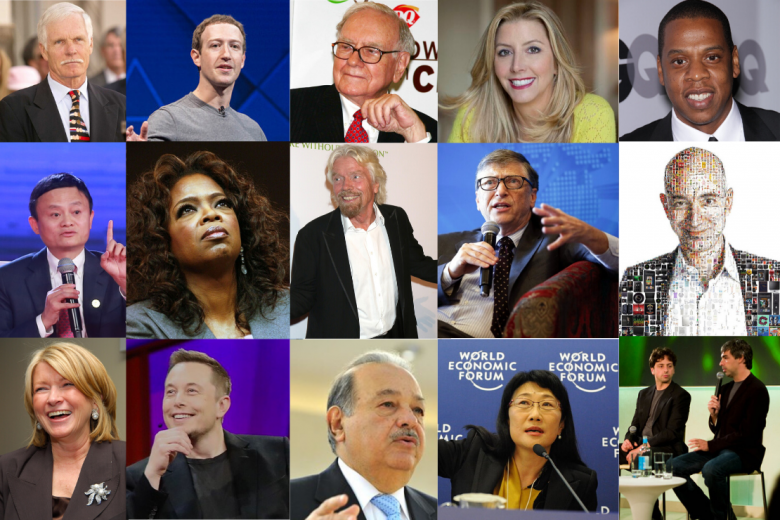
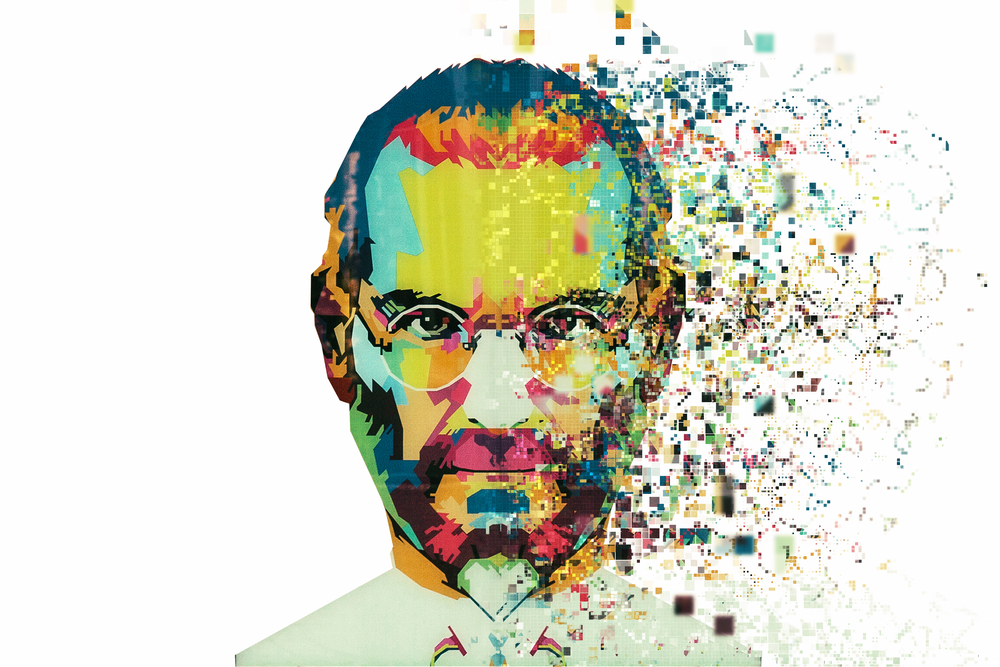
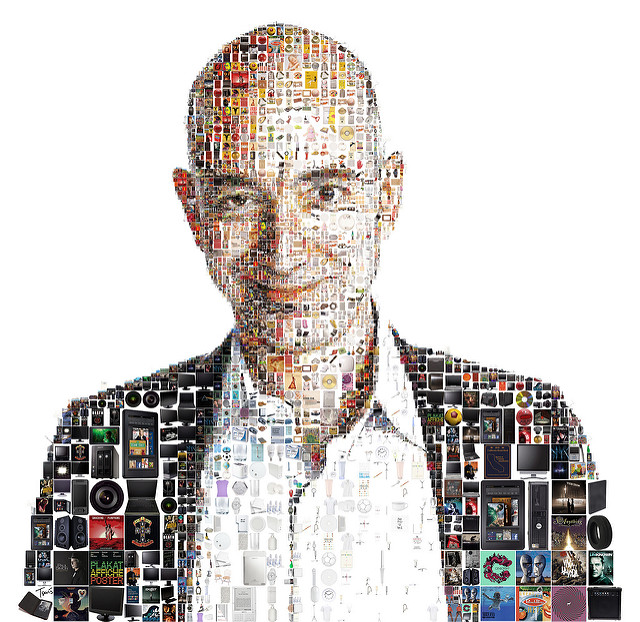
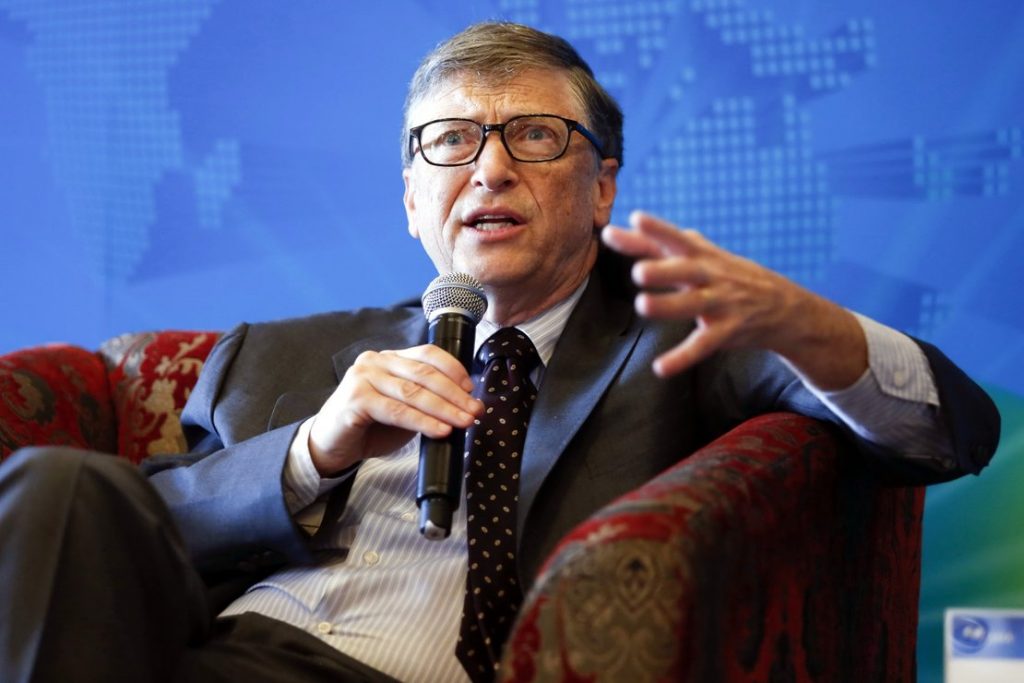
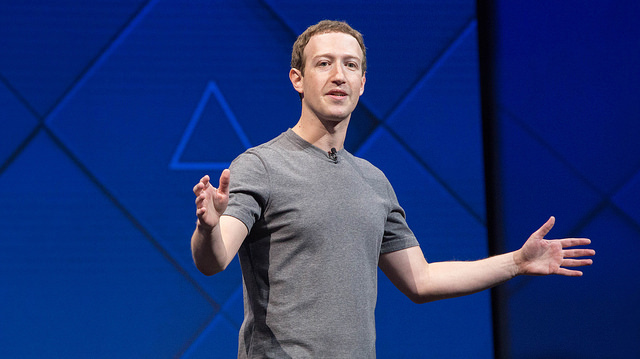
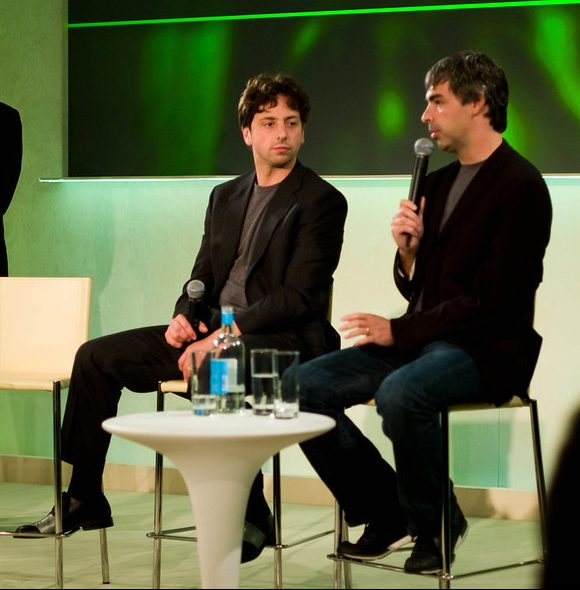
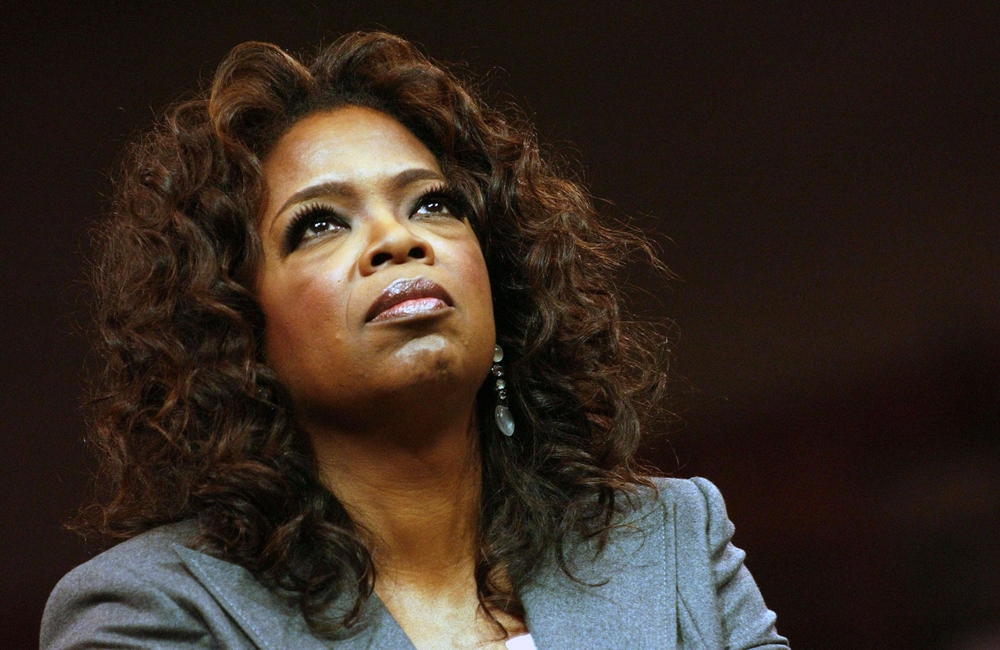
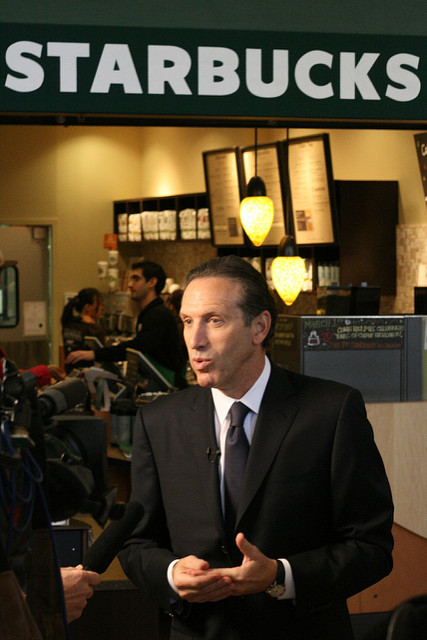
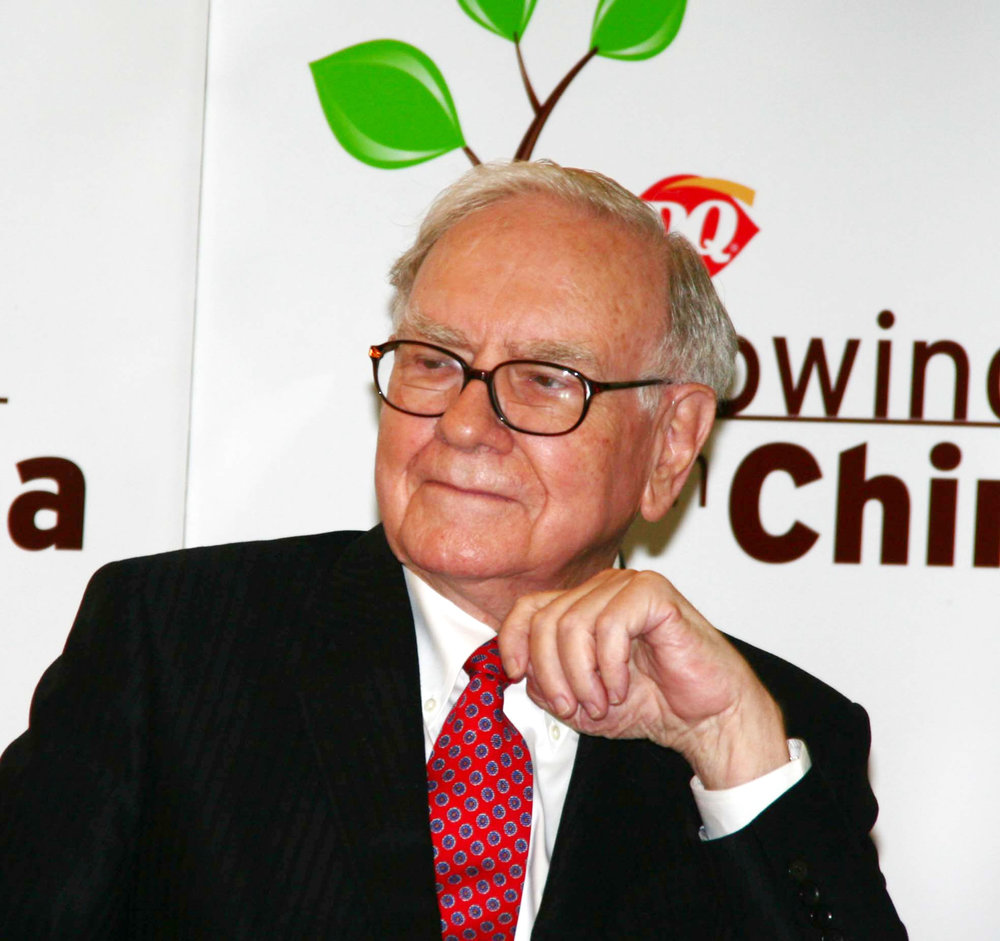
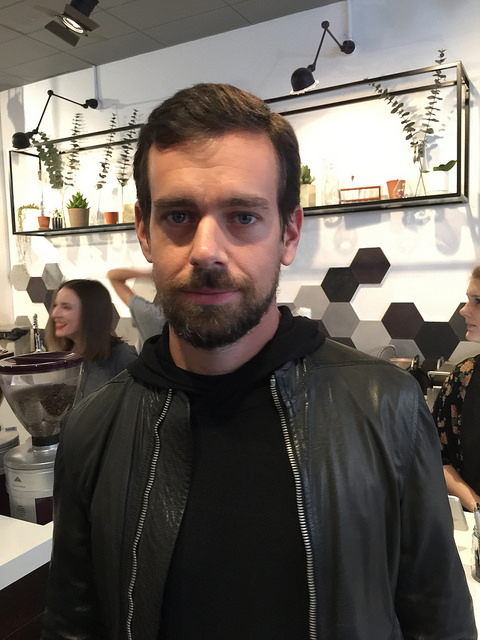
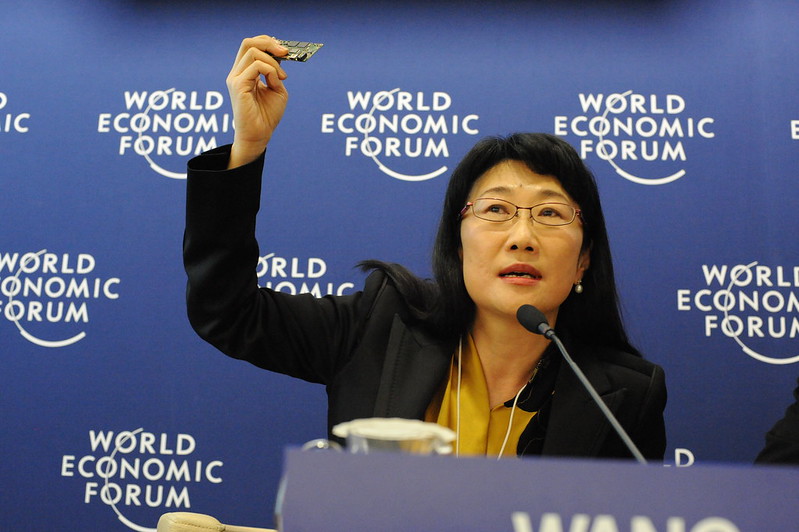
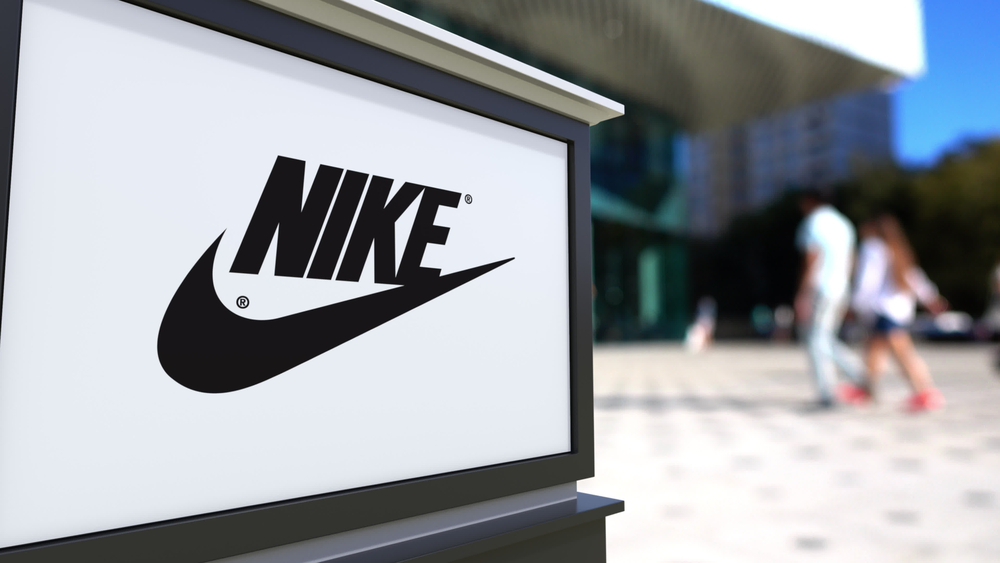
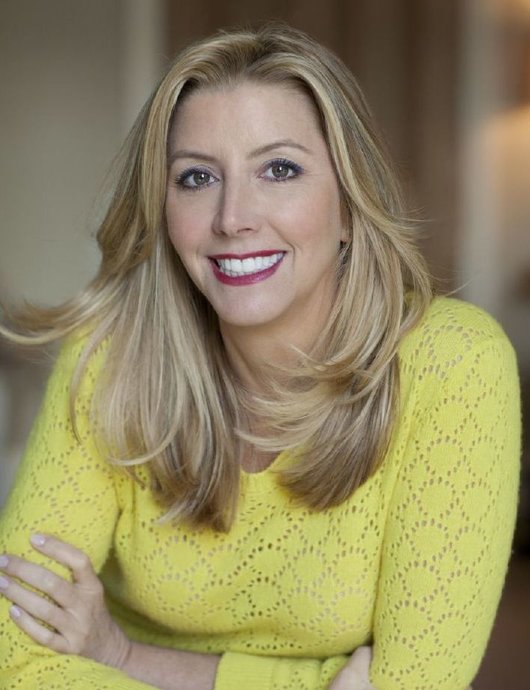
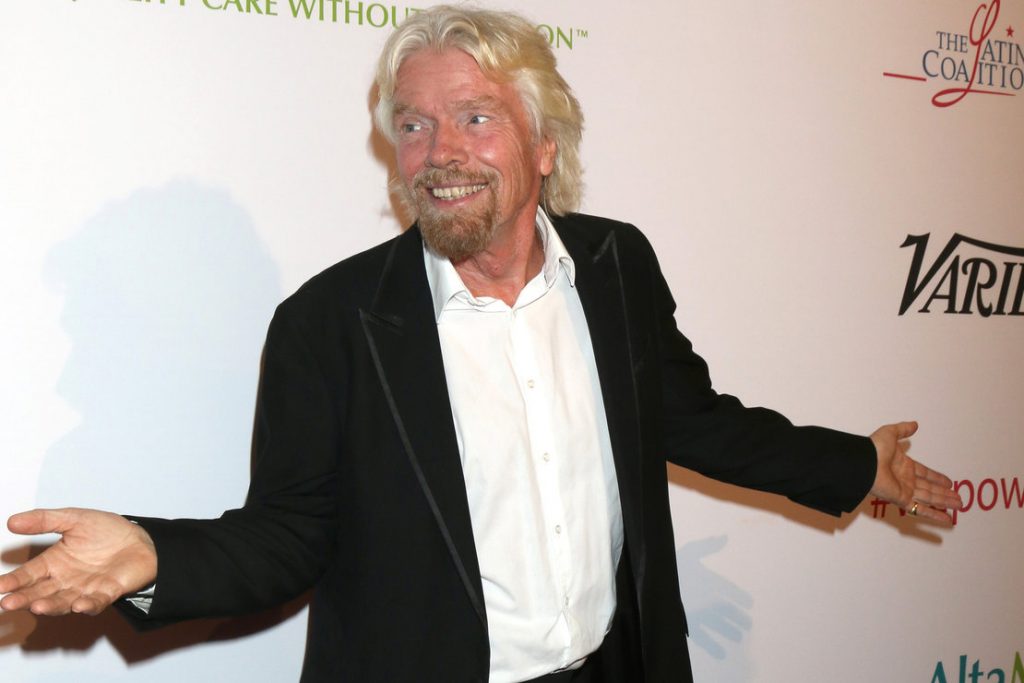
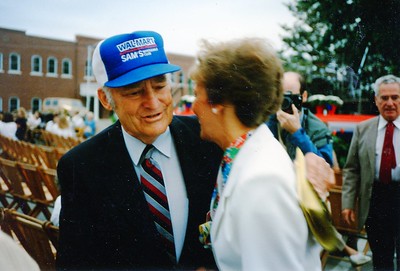
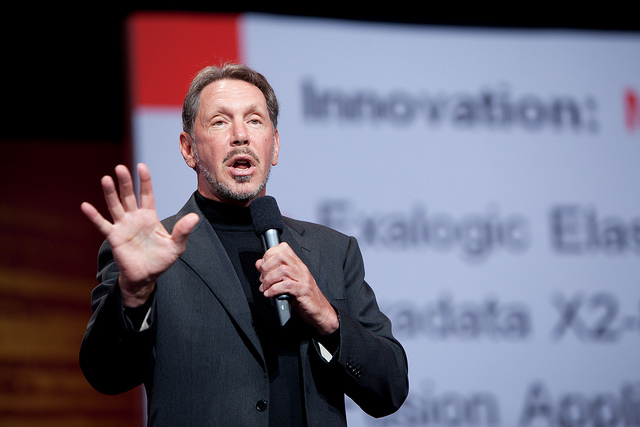
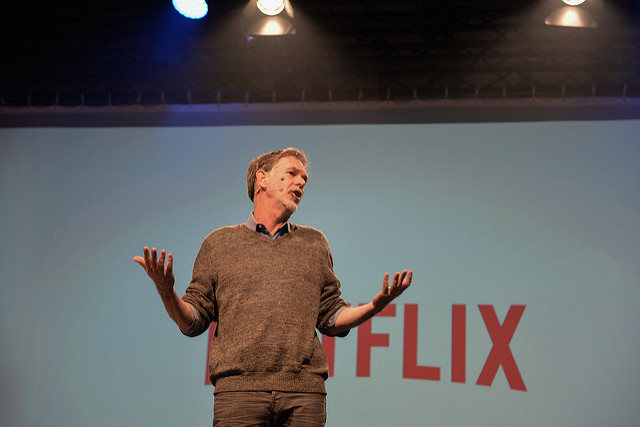
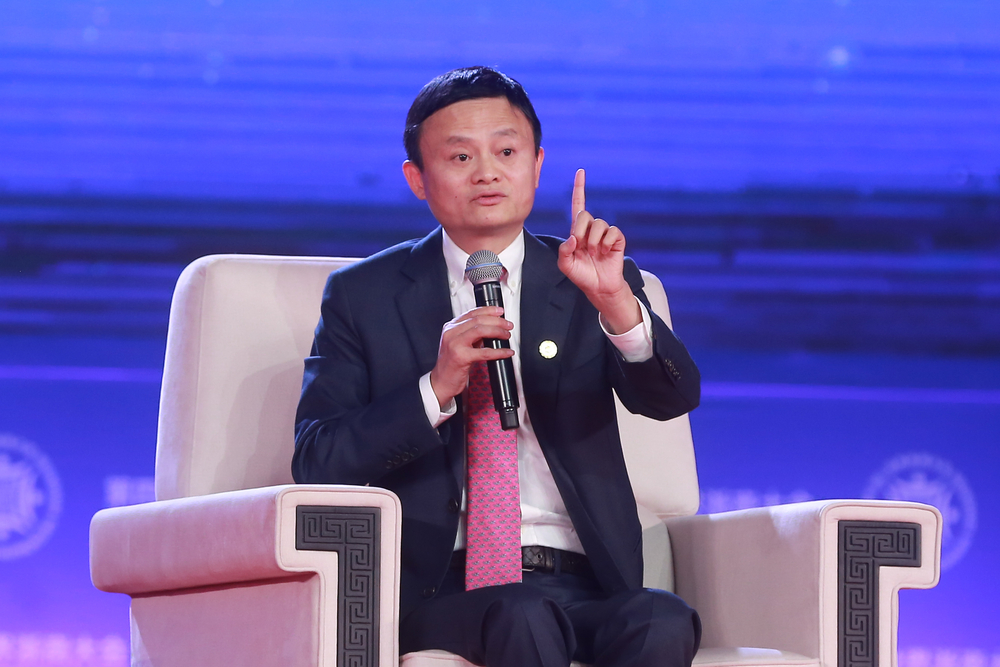
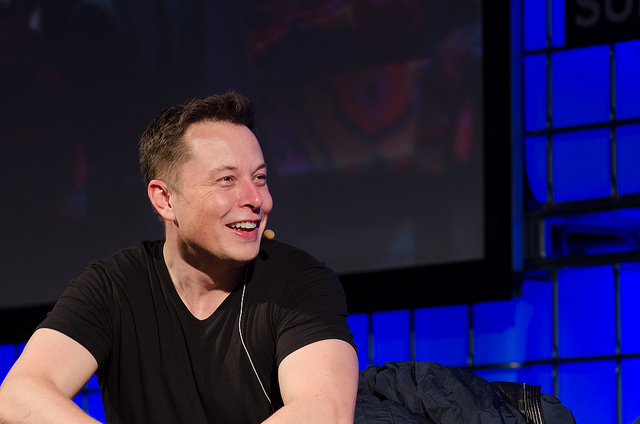
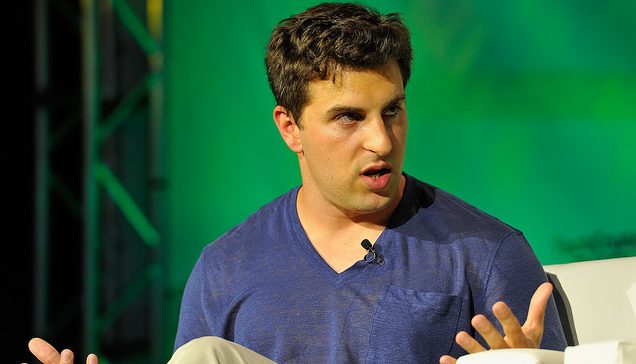
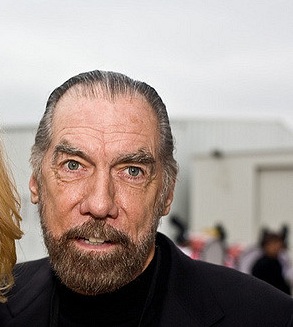
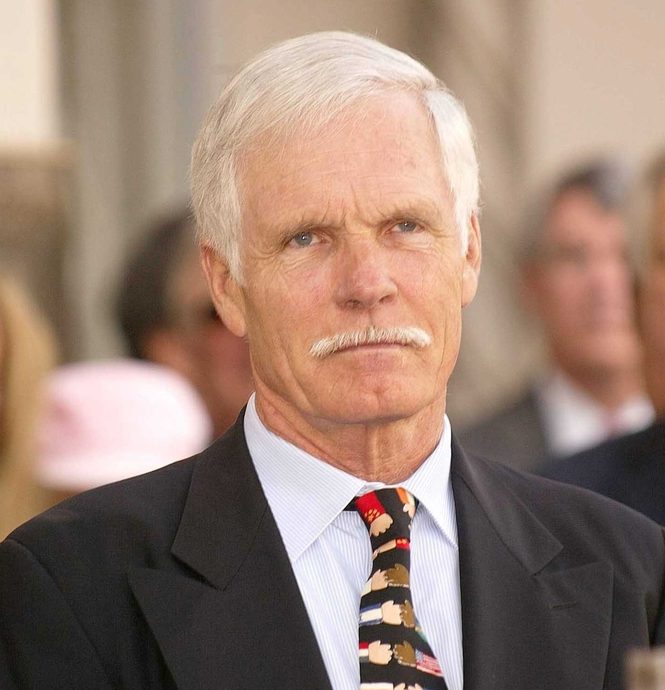

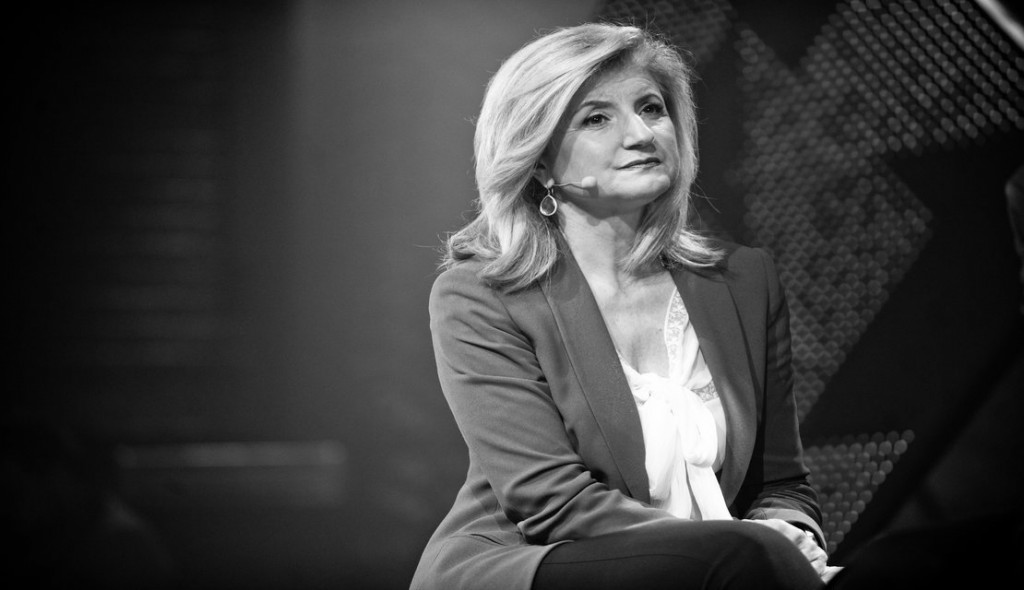
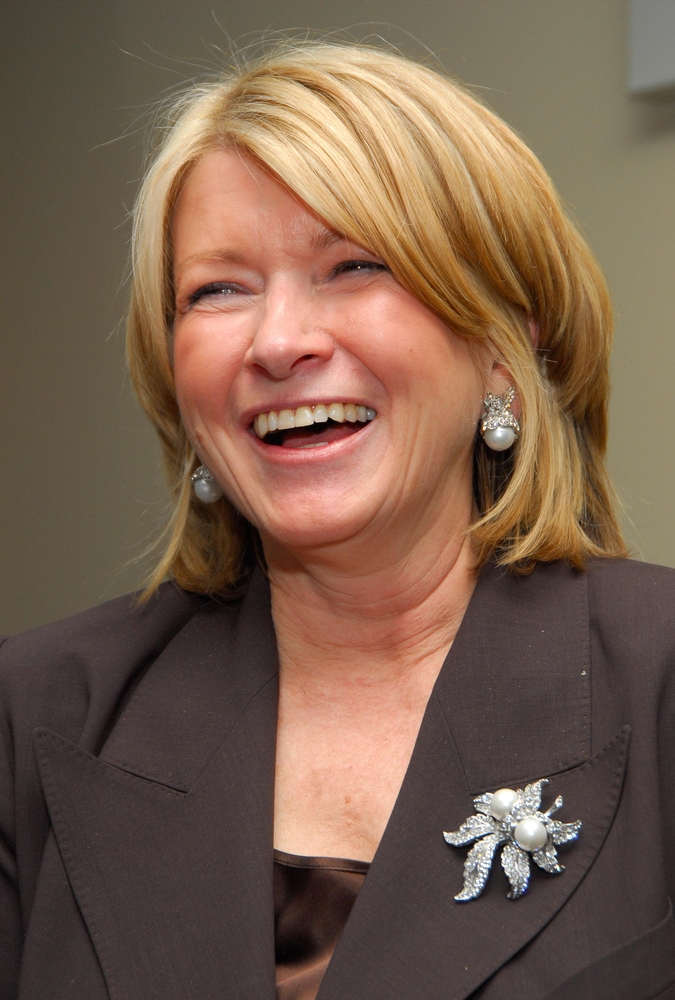
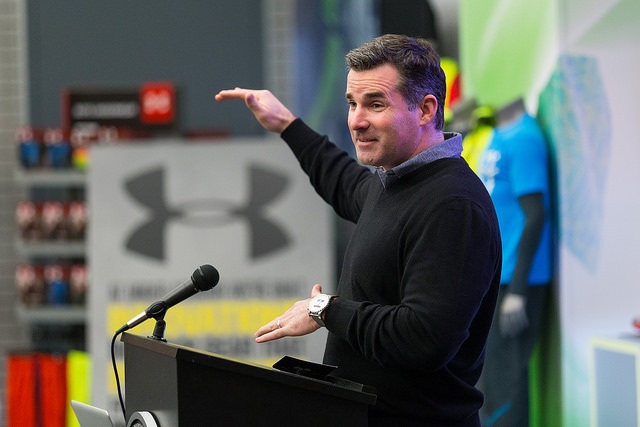
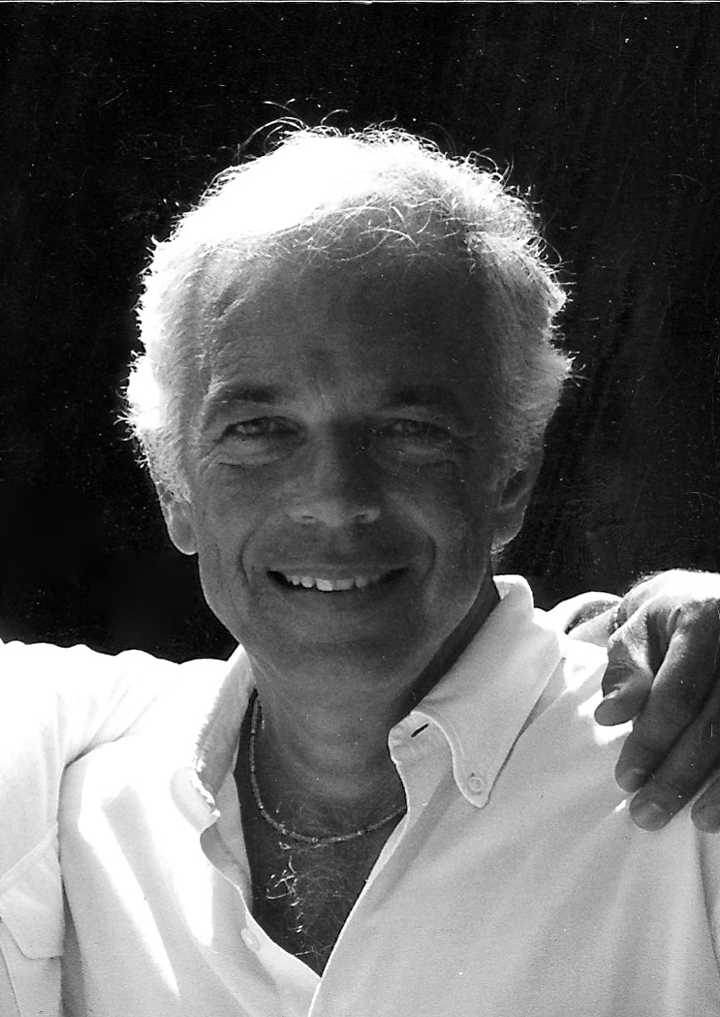

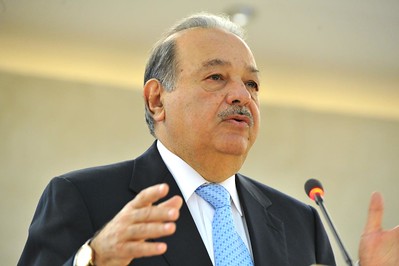
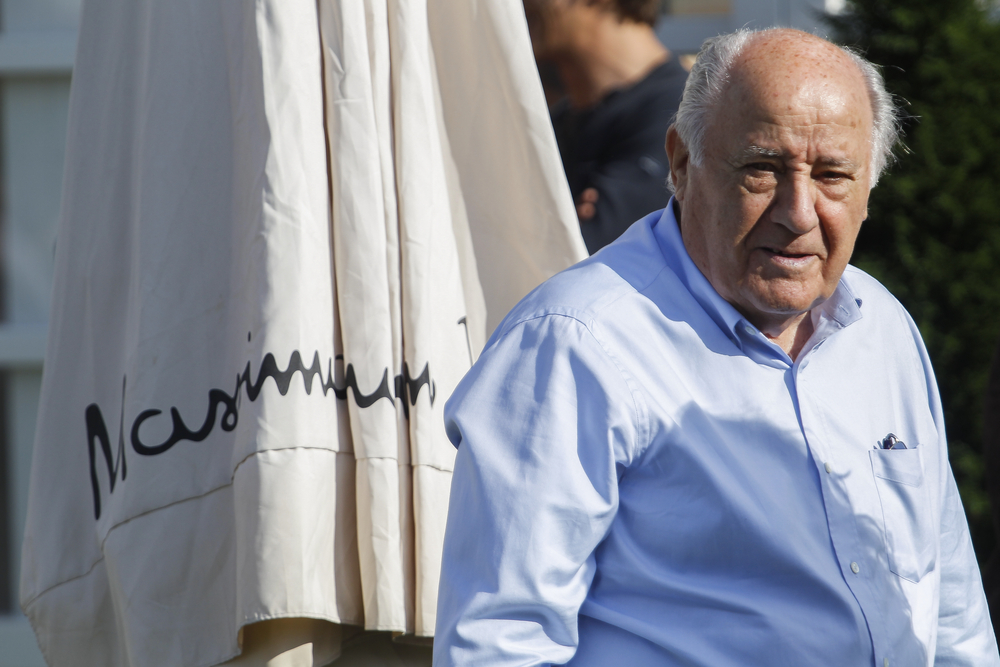










Pingback: 10 Companies Owned By Bill Gates - StartUp Mindset
Pingback: 20 Entrepreneurs that Changed the World - StartUp Mindset
Pingback: 25 Awesome Richard Branson Quotes That Will Help You Conquer Life and Succeed in Business - StartUp Mindset
Pingback: What Kind Of Biz Hero Are You? - Biz HEROES Way
Pingback: How Much Does Jeff Bezos Donate to Charity? | Blockchain Consultants
Pingback: How Much Does Jeff Bezos Donate to Charity? - StartUp Mindset
Pingback: How Much Does Jeff Bezos Donate to Charity? | Biz Builder Mike
Pingback: How Much Money Has Bill Gates Donated? - StartUp Mindset
Pingback: ¿Cómo se hizo rica Oprah? - MundoEmprendedor.Online
Pingback: 10 multimillonarios que comenzaron sin nada - MundoEmprendedor.Online
Pingback: List of 20+ people who are entrepreneurs
Pingback: 10 Billionaires Who Started With Nothing - StartUp Mindset
Pingback: How Did Oprah Get Rich? - StartUp Mindset
Pingback: Here is How Elon Musk Made His Money and How He Spends It. - StartUp Mindset
Pingback: 25 Inspiring Quotes from Elon Musk - StartUp Mindset
Pingback: Here are All of the Companies Owned and Founded by Elon Musk - spacenity.com
Pingback: Here are All of the Companies Owned and Founded by Elon Musk - StartUp Mindset